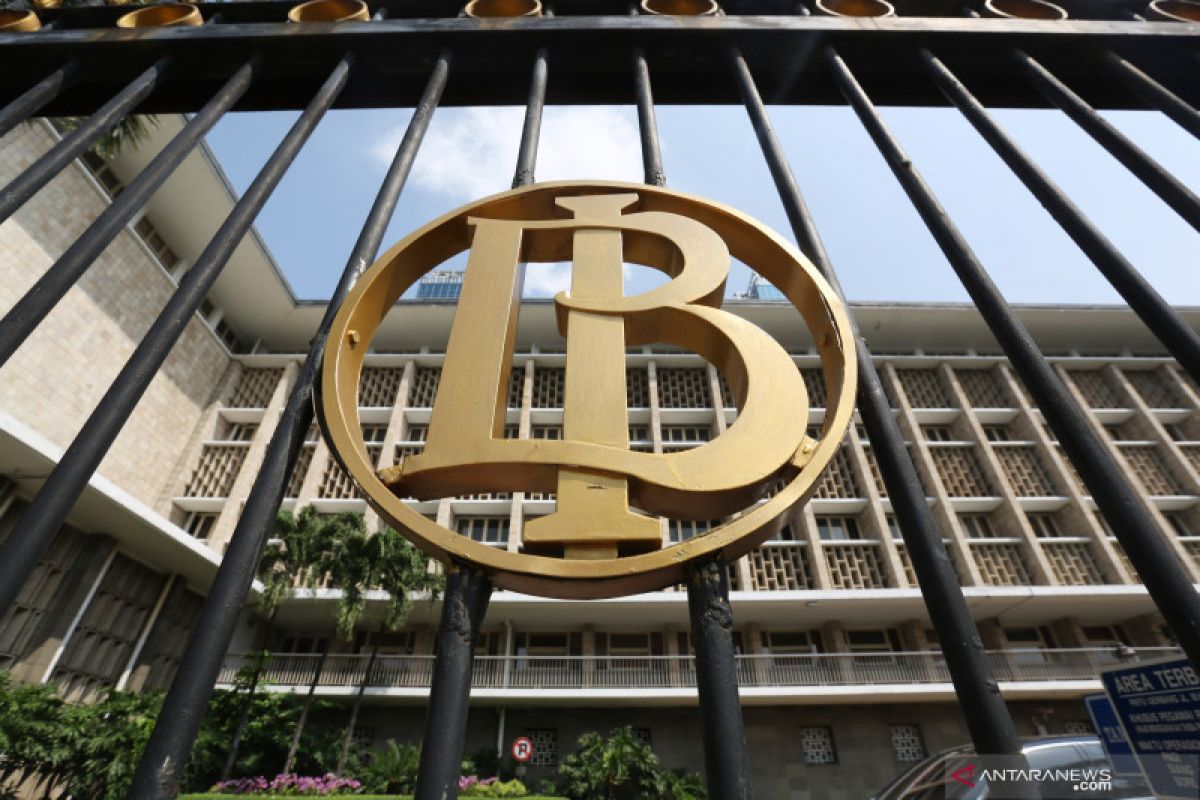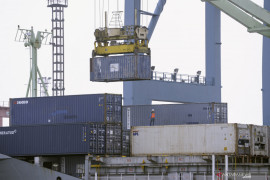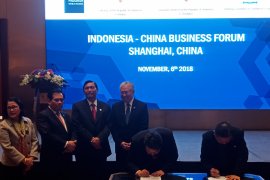"The improvement stemmed from a non-oil and gas trade surplus due to declining non-oil and gas imports across all commodity groups coupled with stronger non-oil and gas export performance," Widjanarko noted in a statement in Jakarta on Monday.
Meanwhile, the oil and gas trade deficit also narrowed during the reporting period as a result of increasing oil and gas exports coupled with stable oil and gas imports.
Hence, for the year, Indonesia's trade balance had recorded a deficit of US$3.20 billion in 2019, considerably lower than the US$8.70 billion deficit recorded the year earlier.
Such favorable developments were supported by the import substitution policy to control imports against a backdrop of sluggish export performance in line with global economic moderation and sliding international commodity prices.
The non-oil and gas trade balance booked a surplus of US$0.94 billion in December 2019, thereby reversing the US$0.30 billion deficit posted in November 2019.
The main contributors to the non-oil and gas trade surplus in December 2019 were declining non-oil and gas imports, such as vehicles and components.
Furthermore, the imports of raw materials and capital goods also declined in the form of electrical machinery and equipment as well as iron and steel.
The solid non-oil and gas trade balance was also supported by a surge in non-oil and gas exports, led by animal/vegetable fats and oils; metal ore, crust and dust; as well as clothing and accessories.
Hence, cumulatively, for the year, non-oil and gas trade balance in 2019 recorded a US$6.15 billion surplus, increasing from US$4 billion in the previous period.
In the meantime, the oil and gas trade deficit reduced in December 2019 to US$0.97 billion, from US$1.10 billion the month earlier.
The gains come amid a spike in oil and gas exports in the form of refined products, crude oil and gas.
On the other hand, stable oil and gas import performance was recorded as declining imports of refined products were offset by a surge of imported crude oil.
Cumulatively, in 2019, the oil and gas trade balance recorded a US$9.35 billion deficit, improving from US$12.70 billion in the previous year.
Bank Indonesia is confident that the trade balance developments recorded in December 2019 and throughout 2019 were positive in terms of strengthening the external resilience of Indonesia's national economy.
Moving forward, Bank Indonesia will continue to strengthen policy synergy with the Government and other relevant authorities in order to strengthen external resilience, including the trade balance outlook.
Related news: Trade balance may potentially swing to surplus in 2020: BI
Related news: Indonesia plans to slash oil imports to overcome trade deficit
Related news: 2019 trade balance deficit reduced sharply to touch $3.2 billion
Reporter: Azis Kurmala
Editor: Sri Haryati
Copyright © ANTARA 2020







